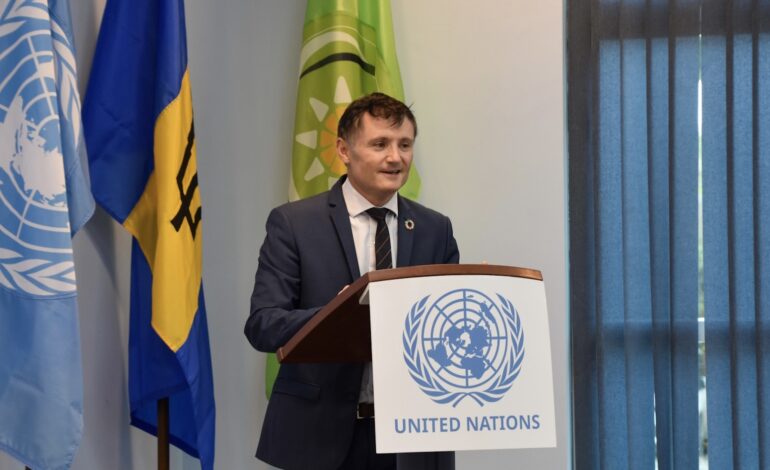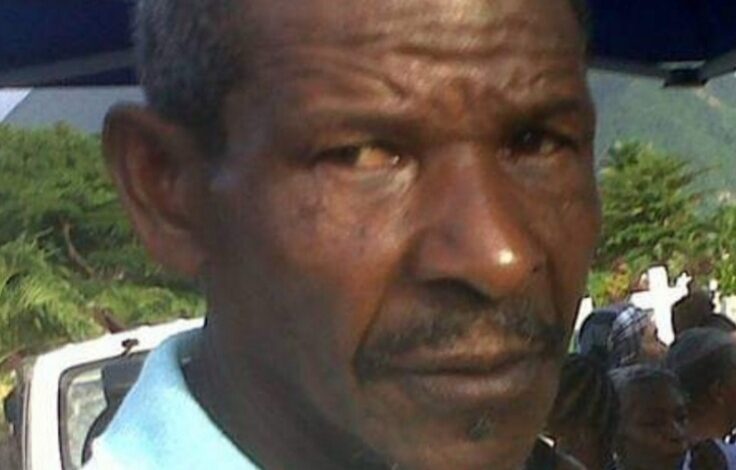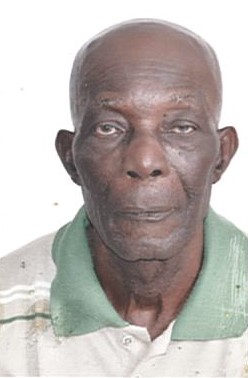
Article 1, Universal Declaration of Human Rights
Every year around the world, Human Rights Day is celebrated on 10 December, which coincides with the culmination of the observance of 16 Days of Activism against Gender-based Violence. This day is a chance to recognize the progress we have made in the protection of all people, especially of those who are neglected, stigmatized, or left behind.
We pause, with an eye on the past months, and we charter the future. We renew our commitments to inclusion of all human beings, and to progress towards fairer communities and societies.
This year is not different, except that we are looking far back to 1948, to a time that inspired one of the most powerful documents in History – the Universal Declaration of Human Rights. We are also looking forward with expectation, as we embark on a year-long campaign to celebrate its 75th anniversary in 2023 and foster greater progress towards the Global Goals.
The vision of a world that would ensure human development without distinctions was born in 1948 and remains at the center of the 2030 Agenda and the 17 Sustainable Development Goals, which aspire for peace and prosperity for people and planet.
The Universal Declaration recognized that a life in dignity could only be realized if we ensured every person access to justice, several freedoms (of expression, of movement, of religion, to name a few) as well as an adequate standard of health, food, housing and social services, employment, and education.
These principles are the bedrock of the SDGs, outlined by the UN in 2015, to which nearly all countries worldwide have committed themselves, with a promise to work together to improve the planet and the lives of its population by 2030. These global targets seek to end extreme poverty everywhere, and to ensure that persons of every race, age, and socio-economic status, have access to optimum services and facilities, and are treated equally despite their gender, sexual orientation, or any other factors. The days of discrimination in any form must end.
In 2021, the UN Secretary General issued a report, “Our common agenda”, that recognizes the need for a renewed social contract, anchored in universal human rights. It underlines a whole-of-society approach that is nourished equally by the State and its institutions, as it is by civil society, individuals, and the private sector. In other words, our 21st century societies can only advance towards dignity and rights if the contributions and forces of individuals, organizations and private actors strive for equality for all, and commit to leaving no one behind.
In this context, we at the UN for Barbados and the Eastern Caribbean recognize that some challenges and needs are pressing, and that our work with and support to national and regional stakeholders must make a difference to women and men of all ages, and notably those who are at-risk and marginalized.
The current concerns of the population, be it high youth unemployment, gender disparities in pay, raising cost of living and food insecurity, growing socio-economic inequality, and limited fiscal space for health, education, or social protection, cannot be adequately addressed without genuine participation and social inclusion.
While we have taken positive steps to create a space for the voice of youth, and ensure their inclusion in our planning and programmes, we recognize that there is still more to be done. We must ensure more interaction with persons with disabilities, migrants and refugees, the elderly, LGBTIQ people, and other marginalized individuals or groups.
Similarly, to address in an intersectoral perspective, environmental degradation, and climate-related disasters, and foster resilience of people, institutions, and infrastructure, we need more effective and widespread consultations among all stakeholders including governments, indigenous peoples, persons in rural communities and fisherfolk.
It is for this reason, that our campaign #MoreThan for Human Rights Day 2022 has focused on inclusion and shared the voices of different people in the region. I invite you to visit our social media channels and see how Roxanne, Abel, Anthony, and others are contributing to inclusion in our societies.
I invite you to join us as we continue to strive for a more inclusive society for all.






